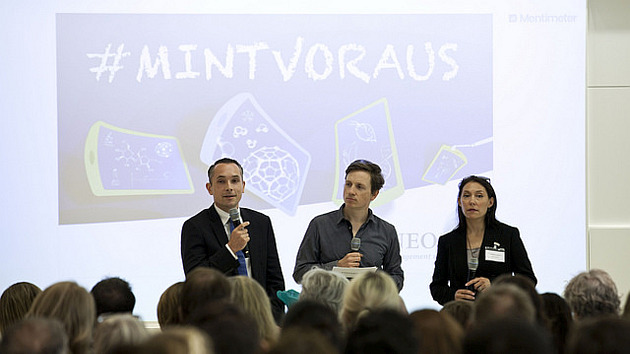A consensus on the importance of STEM education has existed for more than 20 years now. During this period, a broad range of initiatives and programs have been developed to promote courses in these areas as well. Nevertheless, children and adolescents show little interest in natural sciences, and the shortage of skilled employees in STEM-related areas has reached record levels. But the problem extends well beyond this area.
Every individual needs STEM education to understand the modern world, to function in it and to shape it. Regardless of their background, all children and adolescents should have the opportunity to develop their talents and seize professional opportunities in STEM-related areas. The reason for this is simple: Their ideas and expertise are needed in order to develop solutions for such pressing problems as climate protection, dwindling resources and basic services for regions with poor infrastructures.
Despite these challenges, a broad range of programs have been developed to promote STEM education, as the nonprofit consulting and analysis organization PHINEO found in a new report titled “Rediscovering STEM Education.” The focal points range from promoting the skills of children and adolescents and systematically supporting young people, to advancing educational equality and developing an environmentally sustainable society. But support programs are primarily carried out in regions with a particularly high demand for skilled employees. For years, not all people have had access to STEM education. Social background is still the crucial factor that determines the extent to which young people will acquire STEM-related skills. Outdated attitudes about gender roles still stand in the way of girls and young women who may be interested in STEM subjects.
The result: A large number of children and adolescents miss out on opportunities to play a bigger role in society by applying their STEM knowledge and develop a professional future for themselves.
That’s why PHINEO calls for fundamental, far-reaching STEM education. This means that STEM education should not just be made available to everyone and should not just start as early as possible. Rather, it also has to be provided along the entire path that individuals take to enter the world of work and must also continue afterward in a process of life-long learning. Such educational chains facilitate transitions, and the impact can then be felt on the social level.
The Nationales MINT Forum (National STEM Forum Germany) that serves as the patron of the PHINEO report has stressed the need for educational programs to focus on quality and impact: “Our goal must now be to further intensify the impact of STEM initiatives. This means in part that an organization has to determine what impact it wants to have and to systematically channel its energies in that direction,” said Dr. Nathalie von Siemens, spokeswoman for the Nationales MINT Forum.
With the support of Siemens Stiftung, Fritz Henkel Stiftung and Vector Stiftung foundations as well as the Donors’ Association for the Promotion of Humanities and Sciences in Germany and acatech, PHINEO explored the area of extracurricular STEM education and analyzed the effectiveness of 76 extracurricular STEM projects.
Nineteen projects stood out and received the donors’ seal from PHINEO on June 12, 2018, in Berlin. Projects set up in an experimentation area excited members of the public about STEM topics and encouraged them to conduct tests and research themselves.
Three of the projects that won the high-impact seal also received a special prize of €6,000 each from the three support partners:
- Christa Mühlbauer, project head of the education working area at Siemens Stiftung, presented the award to the project “Science on Stage Festival” of Science on Stage Deutschland e.V.
- Heiko Held handed the prize to Fritz Henkel Stiftung for the project “Holly Wood” of the Handwerkerinnenhaus Köln e.V.
- Edith Wolf, a member of the Board of Directors at Vector Stiftung, presented the prize to the project “Learning Motivation through Robotics” that was carried out by the Education Alliance Reutlingen of the BruderhausDiakonie charity.
The report “Rediscovering STEM Education” describes all 19 projects and provides an overview of central impact requirements and ways to provide impact-oriented support. The report has been available for free downloading at www.phineo.org/publikationen since 06/12/2018. You may also order print copies at jacqueline.weigt@phineo.org.
About PHINEO
PHINEO is a nonprofit consulting and analysis organization for effective social engagement. Its mission is to strengthen civil society. With impact analysis, a free donation seal, publications, workshops and advisory services, PHINEO helps nonprofit organizations and investors like foundations and companies have a higher impact.



